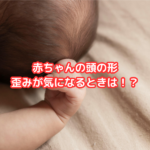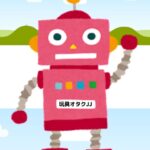
I was born in Japan and currently reside in Tokyo.. I usually write articles about toys.
Top10 Japanese traditional toys
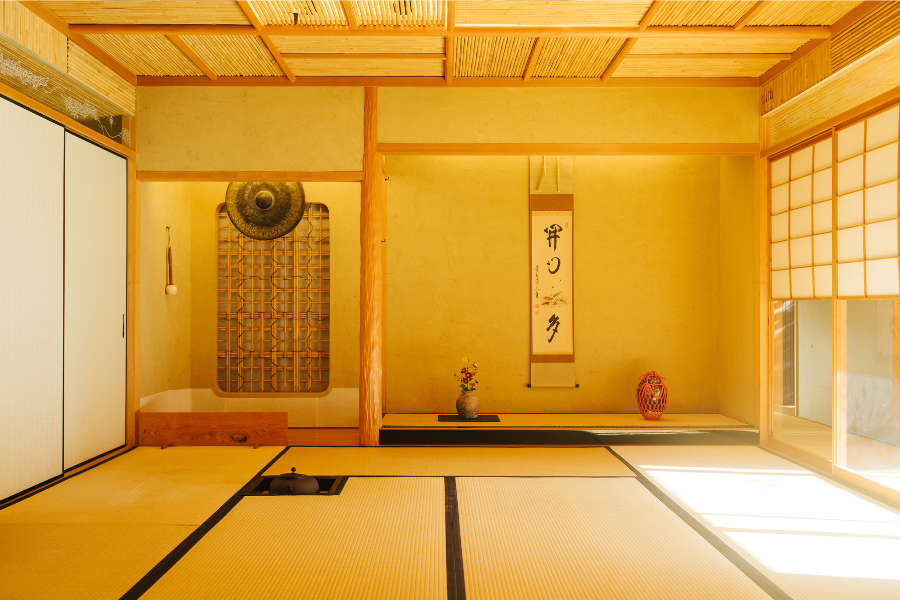
The top 10 traditional Japanese toys are introduced in this article.
Hanafuda
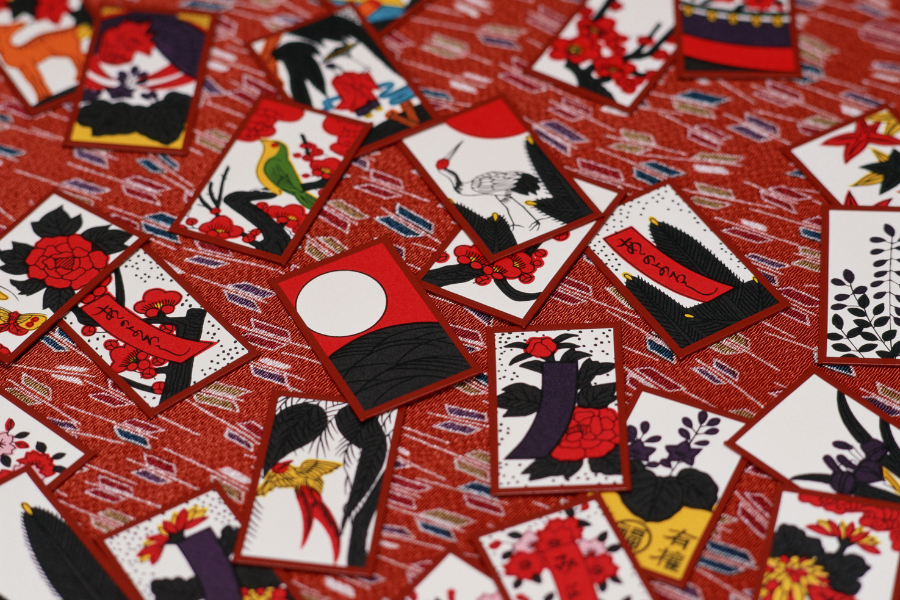
Hanafuda: The Traditional Japanese Card Game
A traditional Japanese card game called Hanafuda is played with a 48-card deck split into 12 suits, where each suit represents a different month of the year.
The most popular game played with Hanafuda cards is called Koi-Koi.

It might be quicker to learn how to play Hanafuda by watching a video.

The beautiful artwork on the cards reflects Japan’s changing seasons.
It’s my favorite.Koi-Koi.
Kendama(cup-and-ball game)
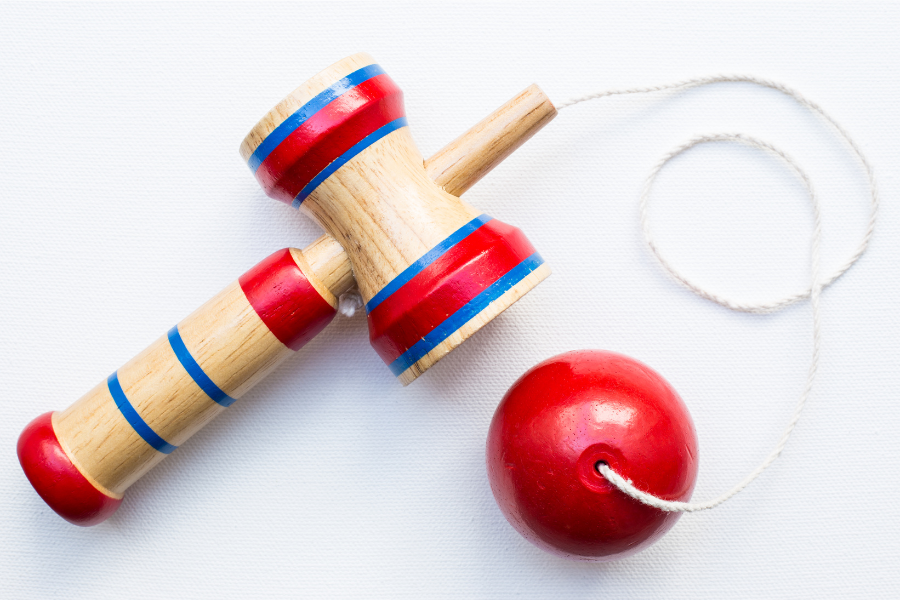
Kendama(cup-and-ball game): A Traditional Japanese Toy
Kendama is a traditional Japanese toy made of wood, consisting of three parts: the ken (handle), the tama (ball), and the string connecting them. The ken has three cups of different sizes and a pointed spike at the top, while the tama is a wooden ball with a hole that fits onto the spike. The goal is to perform tricks by catching the ball on cups or spikes in various creative ways.
Kendama originated in Japan during the Edo period (1603–1868) and has been enjoyed by children and adults alike for centuries. Kendama is a tool that can help build focus, coordination, and patience, despite its simplicity. Starting with basic tricks, like catching the ball in the large cup, players then move on to advanced combinations, resulting in a dynamic and challenging experience.
Its appeal is not only due to its rich cultural history, but also due to its capacity to connect individuals through play and creativity.Kendama is a game that offers endless possibilities for fun and skill development, regardless of your level of experience.
Wouldn’t it be a good idea to give it a go?

kendama is cool !
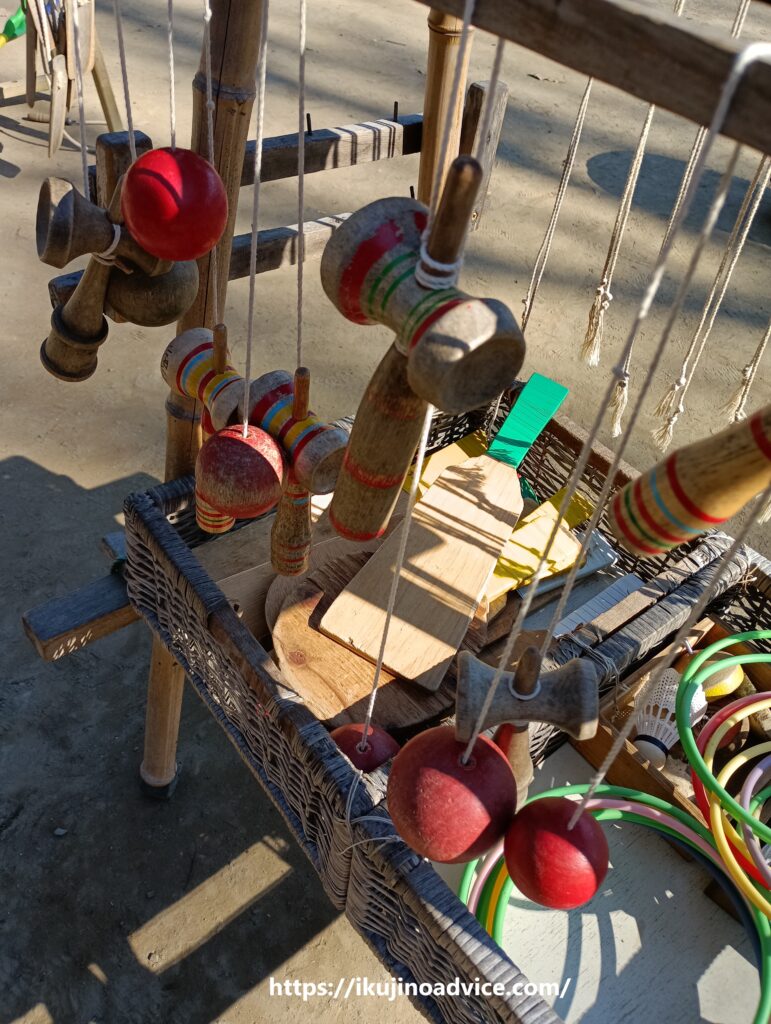

cool !
Daruma Otoshi
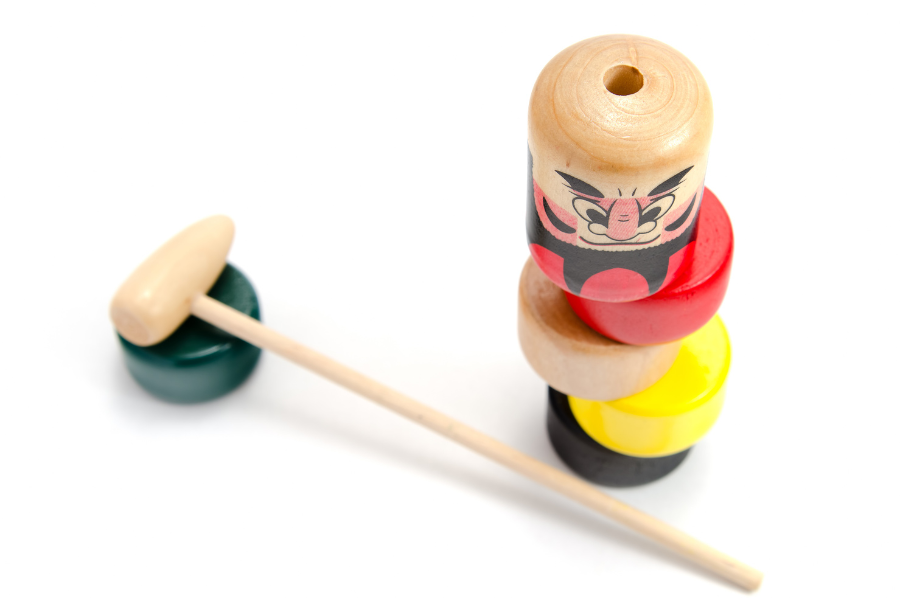
Daruma Otoshi: A Traditional Japanese Stacking Game
Daruma Otoshi, a traditional toy and game that requires skill, precision, and even a little bit of luck, is played in Japan. The game consists of a stack of colorful wooden blocks topped with a Daruma head, which represents a Buddhist monk known for perseverance and good fortune. The objective is to systematically remove the blocks from the bottom of the stack using a small wooden hammer, while avoiding the entire stack from falling over.
The rules are uncomplicated, but they demand concentration and steady hands.Players must strike each block carefully so that the drama head remains balanced on the remaining stack. As the number of blocks decreases, the challenge becomes more difficult to maintain the structure.
Daruma Otoshi is still a beloved traditional toy that is often seen as a popular souvenir.
Koma (Japanese Spinning Top)
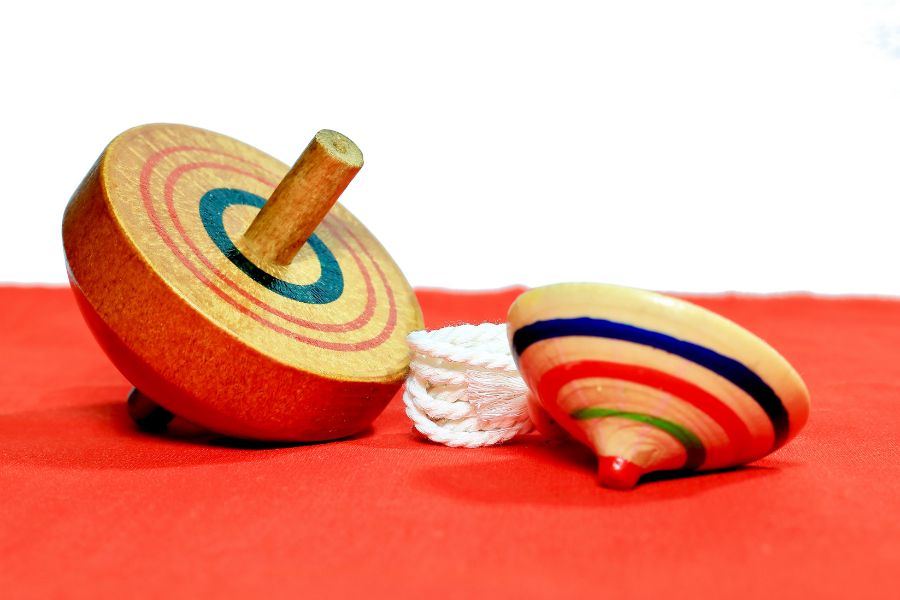
Koma(Japanese Spinning Top): The Traditional Japanese Spinning Top
For centuries, Japan has been enjoying Koma, or the Japanese spinning top, a traditional toy.
Different regions in Japan have their own unique versions of Koma, which come in various shapes and sizes. In certain areas, there are coma-spinning tournaments where players attempt to make their tops spin faster or for longer periods.
Koma is still enjoyed by both children and adults in Japan today, and it’s also a common souvenir for tourists.

The iron beigoma, which became popular during the Shōwa era, remains a beloved traditional toy even today.

Beigoma is cool !
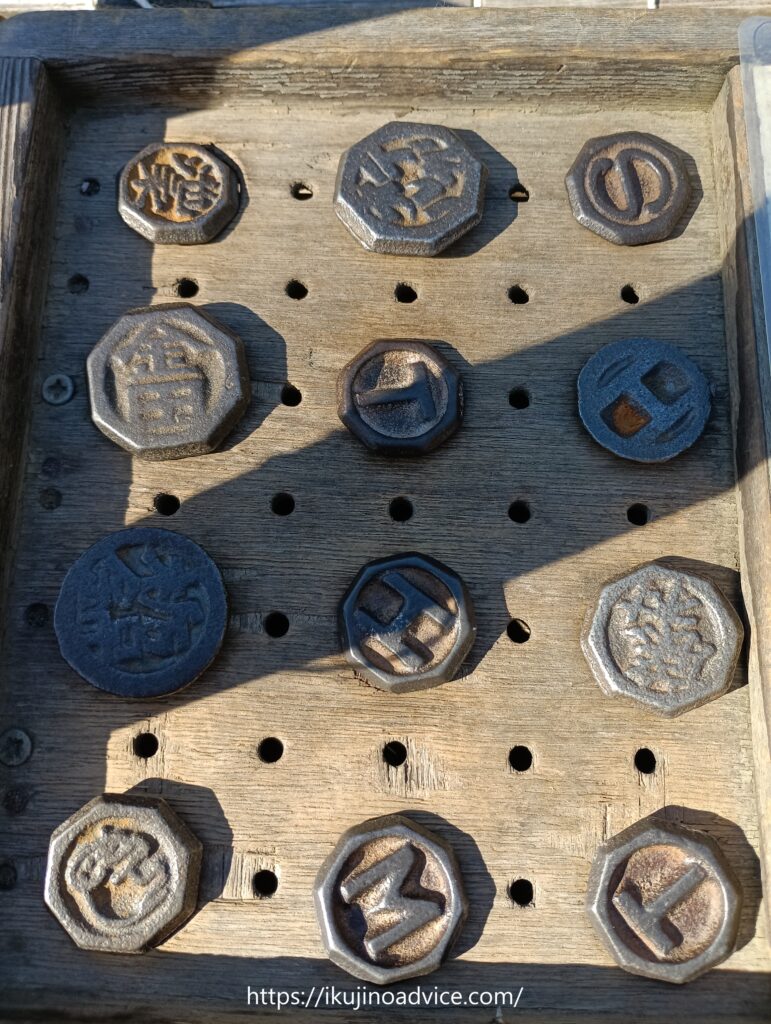

Kanji is cool !
Taketonbo (Bamboo Dragonfly)
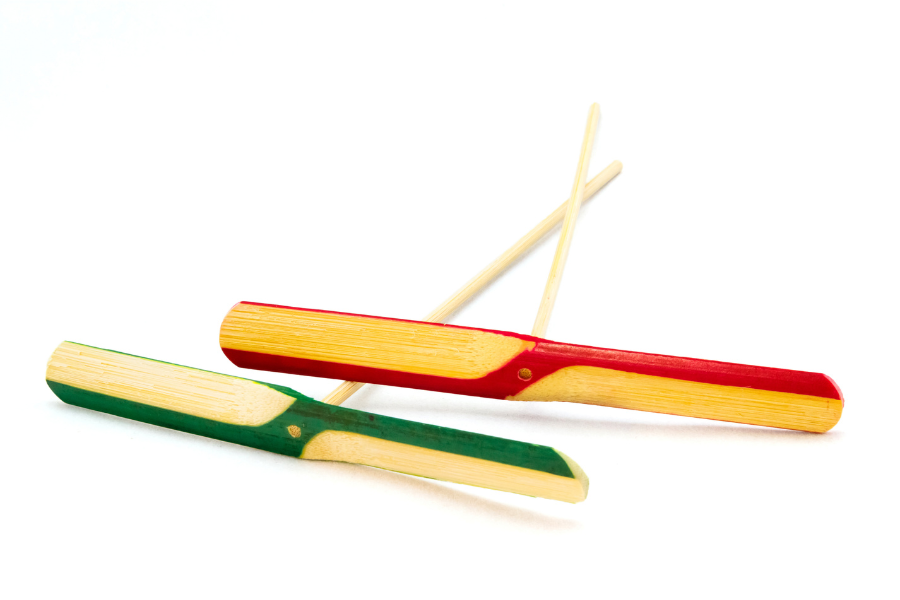
Taketonbo (Bamboo Dragonfly)
The traditional Japanese toy Take Tonbo is made from bamboo.
The toy’s shape resembles a dragonfly with two wings that spin rapidly when activated. The toy works by holding the bottom of the bamboo stick and spinning it between your hands or with a quick flick of your fingers.The Take Tonbo lifts off the ground and hovers for a brief moment before gradually slowing down as its wings spin.
The bamboo dragonfly has been a popular toy in Japan for decades, particularly during childhood.
Local artisans craft many handmade versions of it, which is a symbol of traditional craftsmanship.The Take Tonbo is not just a toy, but also a part of Japan’s cultural heritage.Festivals, toy shops, or as souvenirs for visitors are often where it can be found.

Traditional craftsmanship !
Kite
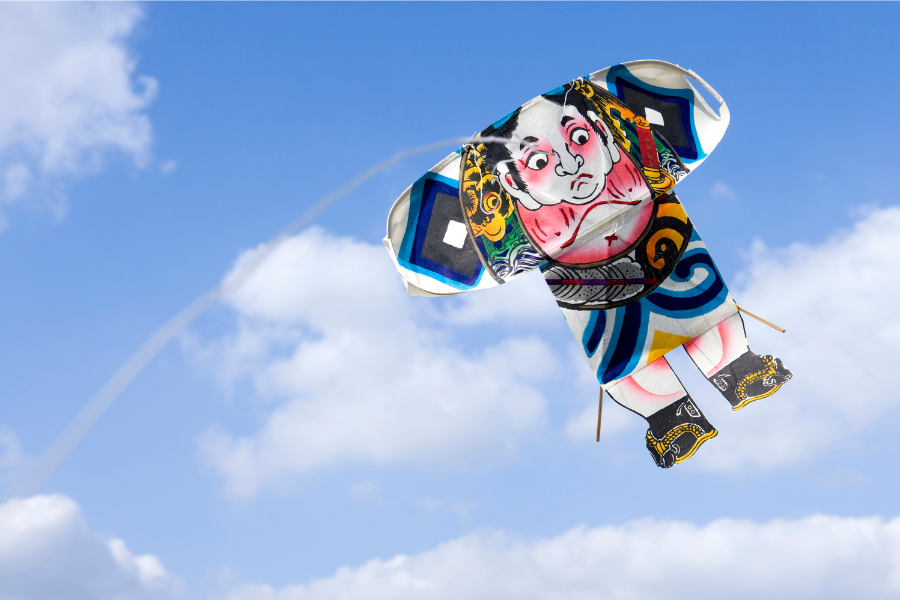
Kite: A Traditional Japanese Toy
A kite, or ‘talk’ in Japanese, is a traditional toy that has been enjoyed in Japan for centuries. The kite, which is typically made of bamboo and made of lightweight materials like paper or cloth, is designed to fly high in the sky when it is pulled by the wind.The kite’s direction can be controlled by the flyer with the string attached, and depending on the design, the kite can perform tricks or soar gracefully through the air.
Menko
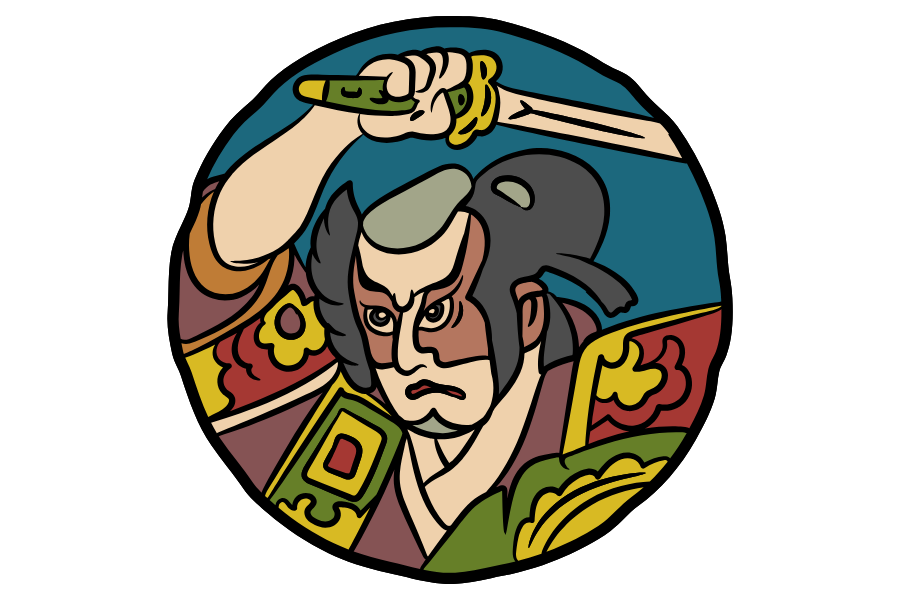
Menko: A Traditional Japanese Card Game
The traditional Japanese game Menko consists of colorful, thick cards made of paper or cardboard. Children have enjoyed playing the game for generations. Menko cards commonly have images of animals, famous characters, or samurai, and they can be found in different shapes and sizes. The objective of the game is uncomplicated: players aim to flip their opponent’s cards by throwing their own cards with force onto them.

The traditional designs are truly beautiful.
Hagoita
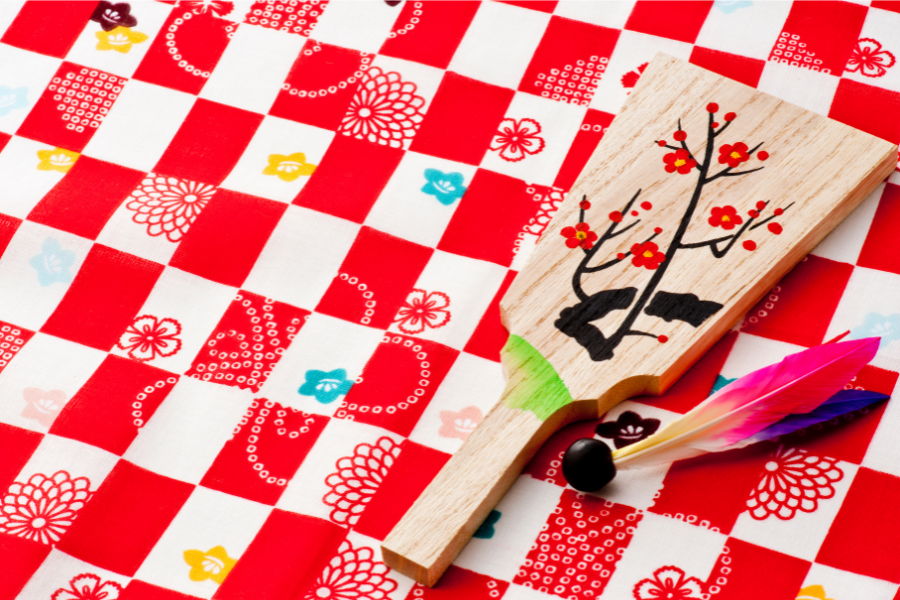
Hagoita: A Traditional Japanese New Year Game
Hagoita is a traditional Japanese game played with a paddle and a shuttlecock, and it holds special significance during the New Year celebrations. The paddle, known as a hagoita, is typically made of wood and is decorated with colorful designs, often featuring images of kabuki actors, famous landscapes, or other traditional motifs. The shuttlecock, called hane, is made of feathers and is hit back and forth using the paddle.

It is similar to badminton.
Ayatori
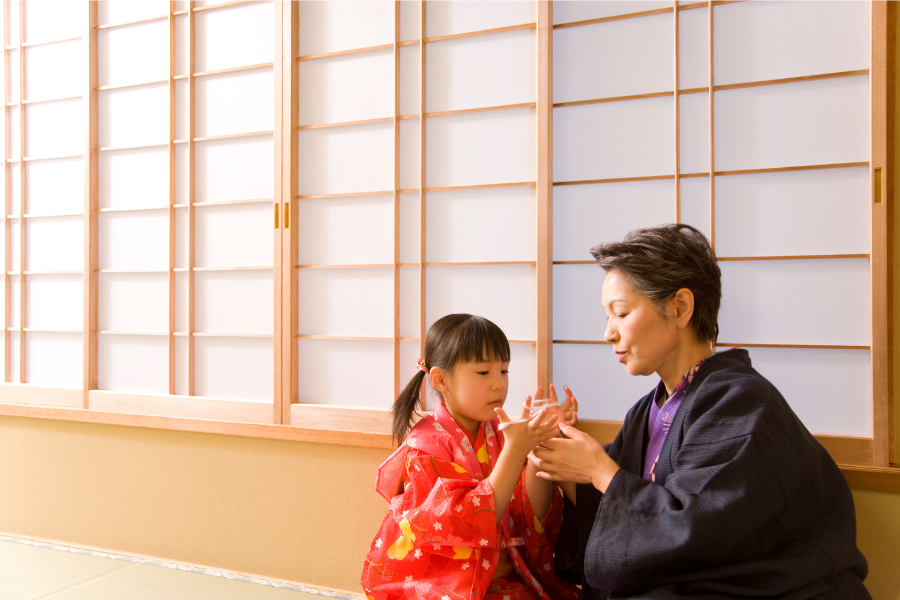
Ayatori: The Japanese String Game
Ayatori, also known as “cat’s cradle,” is a traditional Japanese game that involves creating intricate shapes and patterns using a loop of string.

The way to play Ayatori might be easier to understand by watching a video.
Fukuwarai
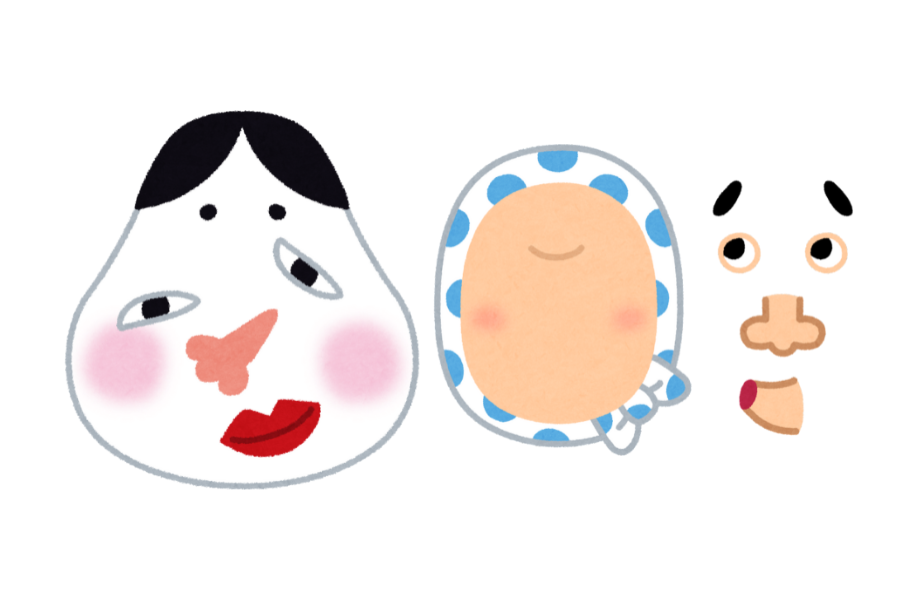
Fukuwarai: A Fun Japanese Game of Face-Making
Fukuwarai is a traditional Japanese game that is often played during the New Year, bringing joy and laughter to families and friends. The game involves creating a funny or unusual face by placing paper cut-outs of facial features on a blank face outline. These features include the eyes, nose, mouth, and eyebrows. The challenge lies in placing the features in the correct spots while blindfolded.

This game is full of laughter !
Conclusion:Top10 Japanese traditional toys
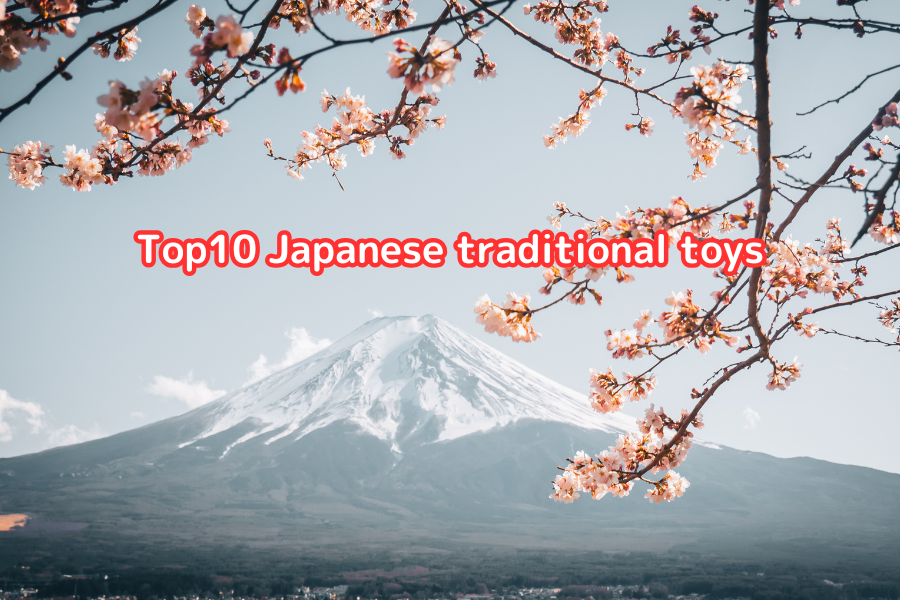
The top 10 traditional Japanese toys are introduced in this article.
To sum up, Japan’s traditional toys are a fascinating look into the country’s rich cultural heritage.
Visiting Japan or exploring different cultures can lead to an enjoyable and meaningful experience by trying these classic toys.
These traditional toys can be a great way to connect with Japanese culture and rediscover the joy of simple, timeless play.

I want to thank you for reading the article.


